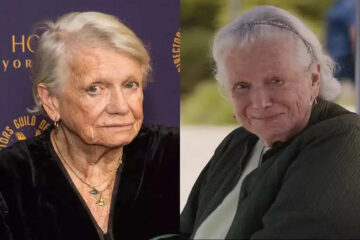Addressing the Gender Pay Gap Insights from Olivia Colman

Addressing the Gender Pay Gap: Insights from Olivia Colman
Opening up about Inequality
Olivia Colman shared her thoughts on the gender pay gap in the film and television industry during an interview on CNN’s “The Amanpour Hour.” The Oscar-winning actor expressed her belief that she would earn significantly more if she were male.
Challenging Industry Excuses

Colman criticized the industry’s tendency to use outdated justifications for paying male actors more, citing the misconception that they draw larger audiences. She highlighted the persistence of this disparity despite it being debunked for decades.
Personal Experience and Awareness
Insight from Colman
Responding to Christiane Amanpour’s inquiry about her personal experiences with pay disparity, Colman candidly admitted that she is aware of significant discrepancies. She emphasized the hypothetical scenario where she, as “Oliver Coleman,” would command a substantially higher salary.
Acknowledging Disparities
Colman revealed a startling example of pay disparity, noting a staggering 12,000% difference in earnings. Her remarks shed light on the magnitude of the issue within the entertainment industry.
Joining the Conversation
Adding to a Growing Dialogue
Colman’s remarks add to a chorus of voices speaking out against wage disparities in Hollywood. Her acknowledgment of the issue underscores the ongoing need for systemic change and equal pay for all actors, regardless of gender.
Echoes in Hollywood
Colman’s comments align with similar sentiments expressed by other prominent figures, including Taraji P. Henson and Bryce Dallas Howard, who have shared their experiences of being underpaid compared to their male counterparts.
Conclusion
A Call for Equity
Olivia Colman’s candid discussion on the gender pay gap highlights the pervasive nature of inequality in the entertainment industry. As the conversation around pay parity continues to gain momentum, her insights serve as a reminder of the importance of addressing systemic disparities and advocating for fair compensation for all actors.













